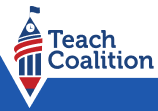By Josh Berkman
Well before the unprecedented COVID-19 pandemic indefinitely shut down commerce and civic life as we know it, Teach NJ was hard at work in its campaign to register voters from New Jersey’s day school and yeshiva community. In February, the organization’s Get Out the Vote (GOTV) team helped hundreds of 11th and 12th graders register as voters. The team also joined with its Teach Coalition counterparts in three other states to run a high school GOTV video contest, collecting 30-second PSAs from dozens of students while working with schools to implement a curriculum focused on the Jewish obligation of voting.
A major part of Teach NJ’s GOTV push has centered on promoting “vote by mail” as an alternative for people unable to vote at the polling stations on Election Day. Now, as the state has moved to conduct this spring’s primary 100 percent by mail, due to social distancing, Teach NJ’s campaign couldn’t be timelier.
“This is the first time in history that voting in New Jersey will be exclusively by mail,” said Ben Hutt, Teach Coalition’s GOTV campaign manager. “We have the opportunity to be proactive and safe. We at Teach NJ want to be part of this because it’s important that everybody maintains their voice during this crisis.”
Teach Coalition, the national body to which Teach NJ belongs, exists to fight for equitable government funding for nonpublic schools. Its staff and network of advocates across the U.S. advance this mission by engaging lawmakers at the state and municipal level, educating them about the importance of a high-quality education in a safe environment for all students. It has successfully advocated for STEM funding, money for security upgrades, nutrition equity, access to school nurses and special education services, and transportation.
A key to Teach Coalition’s success lies in the knowledge that yeshiva and day school parents exercise their collective voice at the ballot box – and have, in many instances, made the difference in key statewide and local elections. It is grassroots organizing at its finest. Yet, there remains a great deal of work in creating a “voter culture” in the Jewish community.
A New York Times exit poll found that Jews comprised roughly two percent of the electorate in 2016, which had a total voter turnout of nearly 129 million people. With approximately 5.3 million Jewish adults in the U.S., according to the Pew Research Center, a basic, back-of-the-envelope calculation reveals that approximately 47 percent of Jewish American adults Jews voted in the last presidential election. Given that people are most inclined to vote in presidential elections, it stands to reason that participation in state and local elections lags behind the underwhelming 2016 data.
“It is important for Jews to vote because there will be many decisions that the government will make in the coming years that will be determined by the results of our elections,” said Rabbi Kenneth Schiowitz, president of the Rabbinical Council of Bergen County and founding rabbi of Congregation Shaare Tefillah of Teaneck. “These decisions are likely to have a direct impact on Jewish life in a significant way. Voting is the opportunity to have our voices expressed and heard. We cannot expect our elected officials to care about our concerns if we do not care enough to express ourselves in the elections.”
Maury Litwack, Teach Coalition’s executive director, recently wrote about behavioral research, conducted by sociologist James Clear, who found that one’s ability to identify and “declare” oneself as part of a group is a powerful driver of behavior.
“If one publicly declares the habit, it is more likely to succeed. For example, people who identified as ‘being a voter’ were more likely to vote than those who claimed ‘voting’ was something they ‘wanted to do,’” Litwack wrote. “We need to start emphasizing ‘voter’ (the noun) rather than the verb ‘voting.’”
So how is Teach NJ doing this, with the state’s primary just weeks away, at a time when concern for physical well-being and the health of loved ones casts a massive shadow over every other facet of life?
“We initially planned parlor meetings and home groups to grow the volunteer/grassroots efforts and awareness, community events, tabling outside minyanim and stores, phone and door to door campaigns with volunteers, all with a big push on getting voters to sign up to vote by mail (mail in ballots),” Hutt said. “Because of COVID, we had to cut all the in-person activities that are usually very effective.”
Hutt explained that Teach NJ has pivoted to remote outreach, including campaigning software/tools to reach as many voters as possible, a mass mailing to Jewish homes in Bergen County, and utilizing social media videos. Once the state sends out ballots, volunteers will make a major push to remind everyone, by phone, to return their ballots. This includes engaging lay leaders to help with the outreach, while also scaling the effort to day school and yeshiva communities in Passaic and Monmouth Counties.
However, with so much public focus elsewhere, many may wonder why not take this election off and rally next time around? Rabbi Schiowitz instructs that skipping an election is not an option.
“There is a religious and moral imperative to do our part in shaping the society in which we live and to ensure that, to the extent possible, it reflects our core values,” Rabbi Schiowitz said. “Voting is truly the least we can do.”


